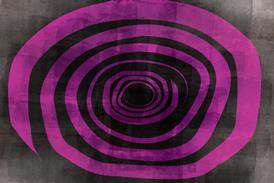Gerard Kelly
Gerard Kelly is co-founder, with his wife, Chrissie, of The Bless Network, an agency active in the UK, France, Croatia, Germany and Spain. Bless inspires and empowers young people to find their place in God's mission in the world. Gerard is a popular writer, speaker and poet. His latest book is a collection of 'twitturgies' - personal liturgies in 140 characters or less - and is published by Integrity Europe in 2012. Gerard and Chrissie live in Normandy, France, where Bless is developing a missional community.
 Opinion
OpinionHow do you pray when the world becomes a war zone?
Gerard Kelly of the Bless Network in Europe gives guidance on how to pray in light of the Brussels attacks and a world where terror is on all of our doorsteps.
 Opinion
OpinionPray that the horrors of Paris Attacks will be swallowed by grace
France is shaken to its core this morning by the attacks in Paris
 Opinion
OpinionVolkswagen's duplicity and why business needs to change
The resignation of Germany's second-highest paid CEO Martin Winterkorn is a sign of just how deeply into crisis Volkswagen has fallen.
 Opinion
OpinionWill this tragic image finally wake Europe up?
A video and several still images of a small child washed up dead on a Mediterranean holiday beach are today changing the hearts of people across Europe
 Archive content
Archive contentLiving on a prayer
Pray faithfully for your local community and expect transformation, says Gerard Kelly.
- Archive content
Created by God
What is it that makes a human, human? If you want to know who you are you, you need to know where you came from. Gerard Kelly insists that origins matter and that a belief in a creator who made you in His image can change your self-worth and the way you live our life.
- Archive content
Focus On the Tribe?
In his next of a series which looks at the challenges of change, culture and technology, Gerard Kelly asks whether our most basic assumptions about family life are really true.
- Archive content
Retrofuture - What a Relief!
Gerard Kelly continues his look at the challenges of change, culture and technology by asking what can the church learn from Comic Relief.
- Archive content
Retrofuture: Table Turning in Cyberia
In the second of a series of articles, which consider the challenges of change, culture and new technology, Gerard Kelly clicks on what he describes as closest the 21st century comes to a cathedral.
- Archive content
Sacred Secular Divide
Dividing life into two distinct camps - the church and the world - holds us back from knowing the true depth and richness of God. Gerard Kelly suggests ways to overcome this false dualism.
- Archive content
Leaders Who Listen
Many Christians are discovering that the command and control styles of leadership don’t produce churches at the cutting edge of reaching the postmodern world. But what sort of leadership do we need? In his first of four articles, Gerard Kelly, author of 'Getting a Grip on the Future without losing your hold on the past', argues that a listening ear is crucial.
- Archive content
Retrofuture: The Age of Paradox
You can learn a lot from looking at a light bulb. Just over 100 years ago physicist Max Planck did just that, and wondered what the steady, yellow glow around the bulb was caused by. The glow defied existing theories of the behaviour of light, and to explain it Planck had to invent the idea of the 'quantum', a tiny 'packet' of energy at the heart of light itself. Planck's solution soon had physicists the world over discussing the 'duality' of light – the idea that it functions both as a wave and as a particle. Out of this duality was born Quantum Theory – on which much of the science of the 20th century has been based.


























